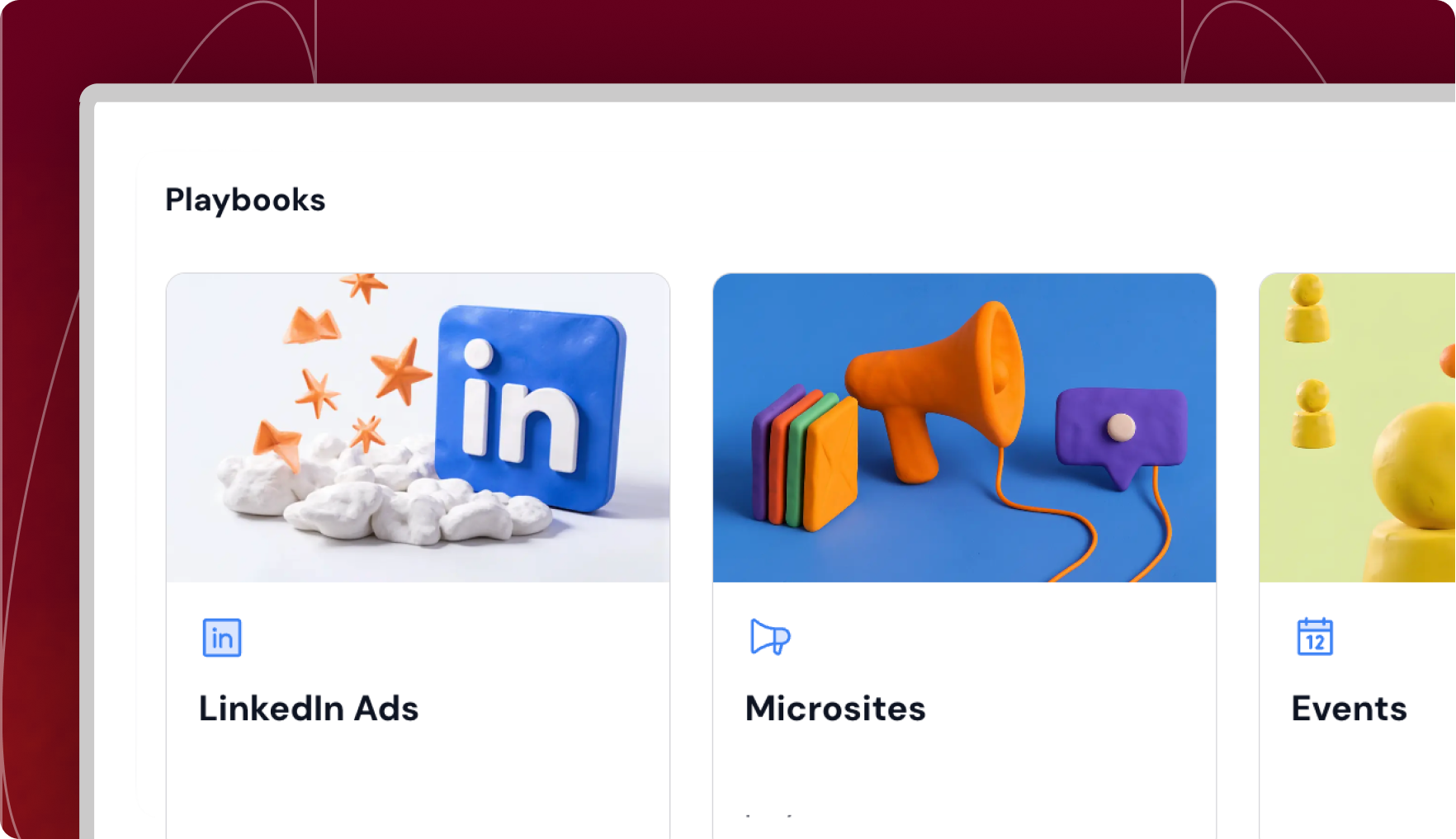Are you a business owner looking to streamline your marketing efforts?
B2B marketing automation may be the solution for you.
By simplifying the process of reaching potential clients and managing leads, automation can help you save time and resources while increasing your ROI.
In this article, we will explore how you can implement and optimise B2B marketing automation for your business.
Let's dive in!
Benefits of B2B Marketing Automation
Increased Efficiency
Companies can benefit from B2B marketing automation to improve efficiency and productivity. By automating tasks like email marketing, sales campaigns, and customer engagement, businesses can save time and resources. Automation helps in segmenting contacts, personalizing content, and targeting specific audience segments. Platforms like HubSpot, Marketo, and ActiveCampaign offer insights and analytic tools to track campaign performance and optimize the customer journey.
Features such as dynamic content, advanced automation, and lead scoring help in engaging prospects effectively and driving revenue growth. In the competitive B2B market, using marketing automation tools is crucial for businesses to succeed sustainably and stay ahead of the competition.
Improved Lead Management
Improved lead management is crucial for enhancing a company's B2B marketing efforts.
By organising and nurturing leads effectively with automation tools, businesses can streamline their sales process and increase conversions.
For example, using segmentation and dynamic content in email marketing automation workflows can engage leads at different stages of the customer journey.
Moreover, advanced automation features like lead scoring and predictive analytics can help identify the most promising prospects for targeted campaigns.
Platforms such as HubSpot, Marketo, and ActiveCampaign provide insights and tools for businesses to optimise their lead management process.
Strategies like lead nurturing and personalising email outreach based on user behaviour can significantly improve engagement and performance metrics.
Investing in improved lead management techniques within a B2B marketing automation system can help businesses effectively nurture leads through the pipeline and drive revenue growth.
Enhanced Personalization
Enhanced personalization can improve customer engagement and satisfaction in B2B marketing strategies. This is done by tailoring content and communications to individual contacts' specific needs and preferences.
Businesses can drive more meaningful interactions with leads and prospects by using advanced automation features such as segmentation, dynamic content, and lead nurturing workflows.
By utilising data analytics and AI technology, companies can gain insights into their audience's behaviour and preferences. This allows for more targeted and effective marketing campaigns.
Platforms like HubSpot, Marketo Engage, and ActiveCampaign offer tools to create personalized experiences throughout the customer journey. These tools cover initial email outreach to lead nurturing and beyond.
Implementation of these strategies can enhance marketing automation processes' performance, leading to better results in B2B marketing efforts.
Popular B2B Marketing Automation Platforms
Salesforce Marketing Cloud

Salesforce Marketing Cloud has many features. These include advanced automation, dynamic content, segmentation, and lead nurturing. These features make it stand out from other B2B marketing platforms. They help businesses streamline marketing, engage with their audience, and generate quality leads.
Using Salesforce Marketing Cloud can improve lead management, campaign creation, and customer relationship building. One effective strategy is to use automation workflows. This helps engage prospects at every stage of the customer journey. The platform's analytics tools offer insights into campaign performance, allowing businesses to enhance their strategies.
HubSpot

HubSpot makes B2B marketing easier with features like dynamic content, segmentation, and lead nurturing. These tools help tailor marketing to specific audiences, boost engagement, and generate leads.
By understanding customer behaviour and preferences, businesses can create relevant content for their contacts. HubSpot's automation workflows help streamline marketing and engage with audiences at every stage of the customer journey.
To succeed in B2B marketing, HubSpot recommends using advanced automation tools, email outreach for lead generation, and optimising the sales pipeline. With HubSpot's CRM software, businesses can track prospects' performance and align marketing efforts with goals. Personalised campaigns created with HubSpot can drive conversions and resonate with the target audience.
ActiveCampaign

ActiveCampaign has advanced automation tools. These tools help streamline lead management in B2B marketing. By using automation workflows, businesses can efficiently engage with prospects and customers. This process nurtures leads through the marketing pipeline. The platform offers dynamic content and segmentation features. These features allow tailored audience engagement for personalized interactions that drive customer engagement. ActiveCampaign focusses on user-friendly automation processes.
This sets it apart from other marketing tools like HubSpot and Marketo Engage. The platform also provides valuable insights and analytics. This helps to optimize campaign performance and customer journey mapping. With ActiveCampaign's email outreach capabilities and CRM integration, businesses can enhance their B2B marketing efforts successfully. They can reach customers with targeted content and automate crucial sales process stages.
Key Strategies for B2B Marketing Automation
Account Engagement Techniques
In B2B marketing automation, effective account engagement techniques include:
- Using email marketing campaigns to nurture leads and engage with contacts.
- Leveraging automation workflows to segment the audience and deliver tailored content at different customer journey stages.
- Utilising features like dynamic content and advanced automation tools on platforms such as Marketo Engage and HubSpot for personalised insights.
- Integrating CRM software like Salesforce and Adobe to streamline information flow between marketing and sales teams.
- Implementing tools like Einstein AI from Salesforce and ActiveCampaign for email outreach to boost performance.
- Employing lead nurturing strategies and user reviews to engage accounts and drive success in B2B marketing.
Effective Onboarding Practices
Effective onboarding practices in B2B marketing automation involve several important factors:
- Ensure employees are trained on the platform's features and tools.
- Offer ongoing training and support for effective engagement.
- Provide insights into marketing campaigns, segmentation strategies, and lead nurturing workflows.
- Use dynamic content and email outreach to engage with prospects.
- Streamline sales processes and monitor campaign performance with automation workflows.
- Utilize CRM software for contact management, pipeline, and analytics.
- Platforms like Adobe, HubSpot, and Marketo Engage offer advanced automation features.
By following these practices, businesses can transition smoothly and optimize their marketing strategies.
Automation Software Integration Tips
When considering automation software for business systems, it's important to think about:
- The specific needs of marketing and sales operations.
- The software's scalability for future growth.
- Compatibility with the CRM system.
To integrate automation effectively, analyse current workflows to identify where tools can streamline operations. For seamless integration:
- Focus on data migration and synchronization.
- Ensure the ability to create cohesive marketing campaigns across channels.
Features like dynamic content and segmentation can personalise messaging for better results.
User reviews and performance insights help optimize workflows and enhance the customer journey.
Successful automation software integration is about engaging leads, nurturing relationships, and driving business growth.
B2B Marketing Automation Rate
Factors that influence the success of B2B marketing automation include:
- The quality of marketing automation tools.
- The level of segmentation in campaigns.
- The engagement of leads and prospects.
Businesses can measure success by:
- Using analytics.
- Gaining insights into customer journeys.
- Reviewing performance data from automation workflows.
By using strategies like email outreach, dynamic content, and lead nurturing within CRM software or an automation platform, businesses can:
- Engage with their audience.
- Personalise content for specific contacts.
Popular platforms like HubSpot, Marketo, ActiveCampaign, and Adobe offer:
- Advanced automation and segmentation tools.
- Options from free plans to paid services.
Businesses can select the right automation platform to suit their needs and gain valuable marketing insights.
Downsides of B2B Marketing Automation
When businesses use B2B marketing automation, they might face challenges related to personalising their marketing strategies.
Marketing automation tools provide features like segmentation and dynamic content. However, the automated workflows can sometimes limit the personal connection needed to effectively engage customers.
Relying on B2B marketing automation platforms can also restrict the flexibility and adaptability of marketing campaigns. Businesses may feel limited by the preset workflows and audience segmentation provided by these platforms, making it harder to respond quickly to changes in the market or customer preferences.
This restriction can create a gap between businesses and their customers, affecting how well marketing campaigns perform.
To address this, businesses should find a balance between using B2B marketing automation tools and maintaining a personal approach to effectively engage their audience.
Best Practices for Successful B2B Marketing Automation
Businesses can improve lead management through B2B marketing automation.
Implementing advanced automation workflows helps streamline the process.
Start from initial contact and go all the way to sales conversion.
Features like dynamic content and segmentation are essential.
They allow businesses to tailor email marketing campaigns.
This ensures relevance and engagement with specific audience segments.
Effective strategies involve integrating automation software into B2B marketing workflows.
Use tools like HubSpot, Marketo, and ActiveCampaign.
Create automated workflows to nurture leads throughout the customer journey.
Improved personalization in B2B marketing automation can be achieved.
Leverage insights from CRM platforms for targeted email outreach campaigns.
Make sure they resonate with individual contacts.
By using automation software, businesses can deliver personalized content.
Engage leads at every stage of the sales pipeline.
This boosts customer engagement and enhances overall marketing performance.
Over to you
This article talks about making B2B marketing automation easier.
It mentions the importance of:
- Simplifying processes
- Segmenting target audiences
- Using data-driven insights
By focusing more and using automation tools, businesses can:
- Increase ROI
- Get better results in their marketing efforts
Generated £1.3M pipeline by focusing on UTM parameters personalisation.


Generated £1.3M pipeline by focusing on UTM parameters personalisation.







